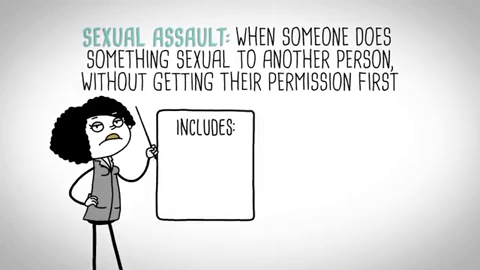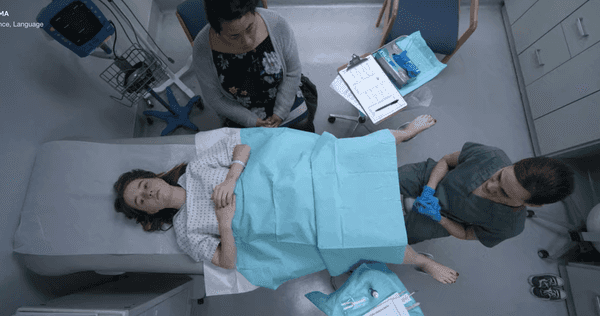1 out of every 6 women has been the victim of an attempted or completed rape in her lifetime. This means that there are hundreds of thousands of people in relationships with female survivors. The partners of these women have the potential to encourage the healing process and make a positive change in their recovery.
1. Don't threaten violence against her abuser

The priority should be her feelings, not yours. If you become too overwhelmed in your anger, she may end up being the one consoling you, and that's not what she needs. If you are a man, remember that male violence is likely something that still frightens her and she doesn't need those reminders. Instead, you can listen and support her in her own angry thoughts.
2. Keep in mind, this doesn't mean you can't be outraged at what was done to her

It just means that she's not the right person to vent that anger to. For serious relationships, it's not a bad idea to go to a few counseling sessions about how to best support your partner. A professional therapist will give you much better advice than a listicle ever could. Many rape crisis centers even have counseling specifically for the partners of survivors.
3. Inquire if there are things you should refrain from doing during intimacy

This will vary widely from person to person. Maybe she doesn't want you to ever, ever, ever put your hands around her neck. Maybe she only wants to engage in oral sex if she is the one who initiates it. And maybe she won't have anything to tell you because she just wants to create better memories with you. Everyone is different, but it's so important to have this conversation, whether you find out about her history before you ever have sex or months into your sexual relationship.
4. If she hasn't reported, don't tell her that she made the wrong decision

There are so many reasons why women choose not to report. Many women fear ridicule and doubt from others. Survivors who go through the legal process often feel that they are being violated all over again. They may feel that it would prevent them from moving on, rather than providing closure. There are also additional implications for survivors of color, undocumented survivors, and women of other marginalized identities that can make going to the cops a terrifying idea rather than a comforting one.
5. Understand that sex might be complicated for her

Because sex was the act during which she was violated, she may have a difficult relationship with her own body or with yours. She might tell herself over and over that rape is about power, not sex, but that doesn't mean that she can completely separate the abuse she experienced from acts of love with you. Patience and gaining trust is key.
6. Know that's it's not uncommon for seemingly unrelated things to become triggers
Anything that reminds her of her abuser, the location of the assault, or other aspects of that day can cause unexpected reactions. Depending on how long it's been, she may have had time to discover within herself the things that are typically bothersome. But something may unpredictably provoke an emotional reaction too. This is all normal.
8. Sometimes maybe just the cuddles

It may be that she doesn't feel like it would be beneficial to share everything that happened. Some don't want to relive the experience by telling it, while others think it's a necessary step for their recovery. What is so crucial about this is that you cannot take her less seriously if she decides not to give you any details.
9. Practice consent, consent, consent

Make sure you are always practicing active, affirmative consent. This is mandatory for every relationship, every hook up, every time you have any relations with anyone. It's always relevant, but important enough to include here as a reminder.
10. Educate yourself on trauma

In order to prepare yourself for the complex issue of PTSD from sexual assault, do some reading. This way, you are less likely to be caught off guard during your time together. Here are some resources.
11. Remember that you are not her therapist

If you are the only person she is confiding in, it could strain your relationship and become unhealthy. It is totally fine — responsible, even — to recognize when the problem may be too big for the two of you and explore the possibility of professional help. Again, rape crisis centers are an amazing resource. Need immediate help? I cannot recommend highly enough the support that RAINN's online chat and telephone hotline provide.
It's vital to remember that everyone is different in their journey of rehabilitation. I am fortunate to be with a loving partner who has followed these tips and more to create a safe relationship with me. But the most important thing is to communicate with your significant other about her needs to discover a process that works best for the two of you. Together you will strengthen your connection and build an extraordinary love. Wishing you the best!























